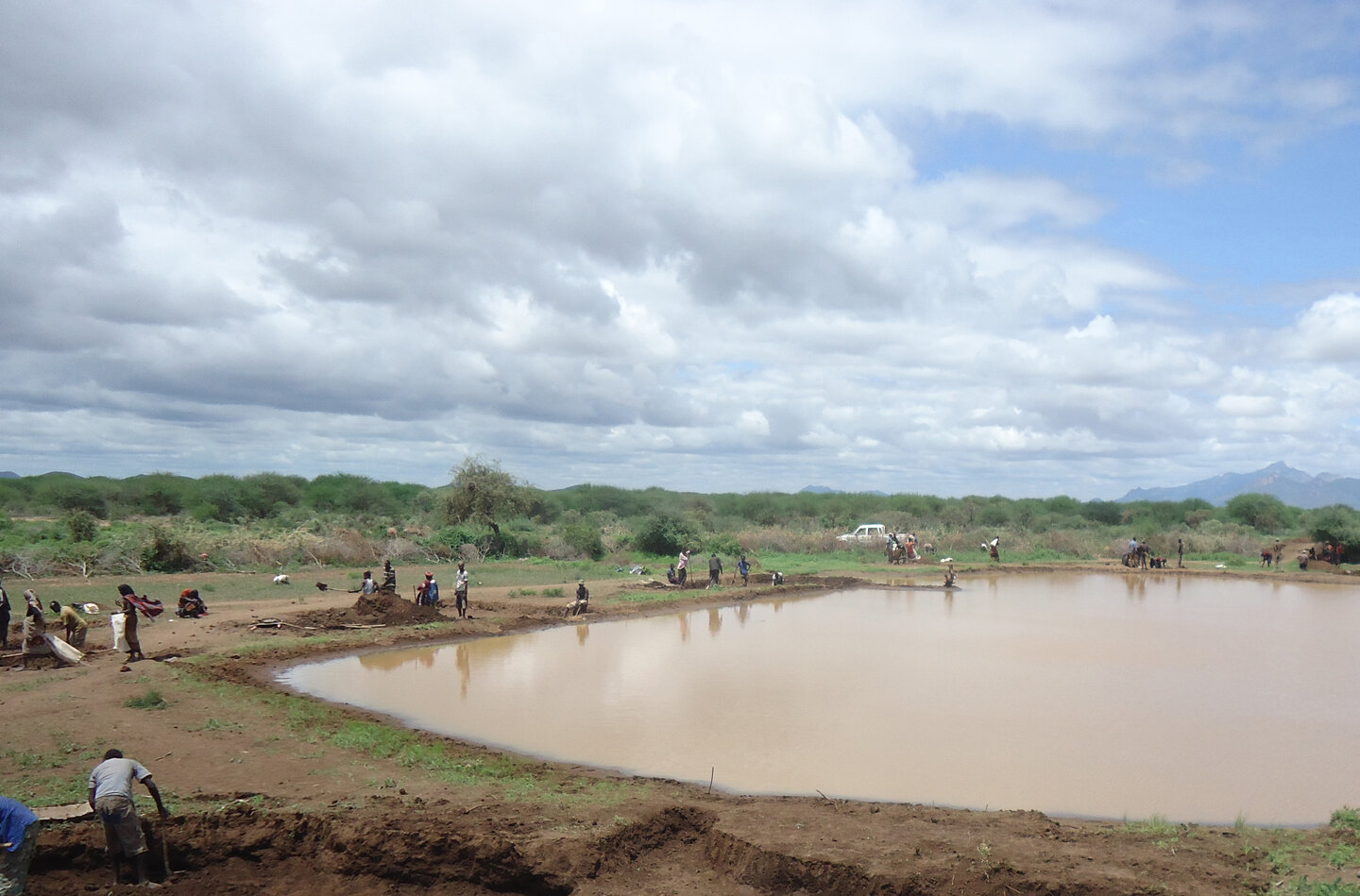More than half of the households in Borana face seasonal food insecurity regardless of their socioeconomic background. The vulnerability of these pastoralist communities has been exacerbated by environmental degradation caused by climate change. Helvetas Ethiopia, with its local partners, works to build the resilience of these communities by improving natural resource management practices and diversifying their income sources.
-
Project NameSustainable Natural Resource Management for Enhanced Pastoralist Food Security in Borana Zone, Ethiopia
-
Project Phase2016 to 2020
-
FundingThis project is an SDC mandate.
-
Thematic focusClimate & Disaster Resilience
Emergency feed
Half of Ethiopian pastoralists’ income comes from livestock and livestock products. Pastoralists only rely on traditionally acknowledged and communally owned grazing lands not supported by formal legal and policy frameworks, as opposed to farmers who enjoy legally certified and demarcated land plots. Because of this, and socio-economic, environmental, and institutional challenges, pastoralists in Ethiopia and particularly in Borana Zone experience increased vulnerability and food security.
Two decades ago, the Borana rangelands were still producing quality inputs for livestock. Now, productivity has dwindled because of advancing bush encroachment, overgrazing, soil erosion, demographic pressure, recurrent drought, and the weakening of traditional rangeland management systems. A significant number of Borana pastoralists are poorer today than they were two decades ago, as reflected by the significant decline in cattle holding per household. Out of 1'178'690 people, 200,00 are currently food insecure, with 35% transitionally food insecure and 65% chronically food insecure.
Because of male-dominated decision making practices and a negative perception of girls’ education, women in these communities are even more vulnerable to poverty.

The goal of NRM-Borana is to improve the food and nutrition security and the resilience of (agro-)pastoralist communities in the Borana zone by improving natural resource management practices and diversifying their sources of income through:
- Rehabilitation of the degraded rangelands and restoring their productivity
- Increasing the access and control of vulnerable (agro-)pastoralist, particularly women, over natural resources
- Increasing the income of (agro-)pastoralist women and diversify their sources of income Creating and facilitating coordination and harmonization platforms between customary and government institutions and NGOs
- Enabling governments to scale up best natural resource management practices
Gender and social equity (GSE) and governance are two elements integral to the project’s approach.
This project is an SDC mandate implemented by Helvetas in a consortium with German NGO Welthungerhilfe.
Downloads
-
1. The ContextPDF (1.42 MB)
-
2. Participatory Resource Management PlansPDF (0.52 MB)
-
3. Supporting More Productive Use of Traditional Water ResourcesPDF (0.51 MB)
-
4. Supporting the More Equitable and Productive Use of Traditional PasturesPDF (0.62 MB)
-
5. Supporting Women's Economic EmpowermentPDF (0.6 MB)
-
6. Forecasting, Early Warning and Eventual Humanitarian ResponsePDF (0.3 MB)
-
7. Peace Building and Conflict ManagementPDF (0.56 MB)




